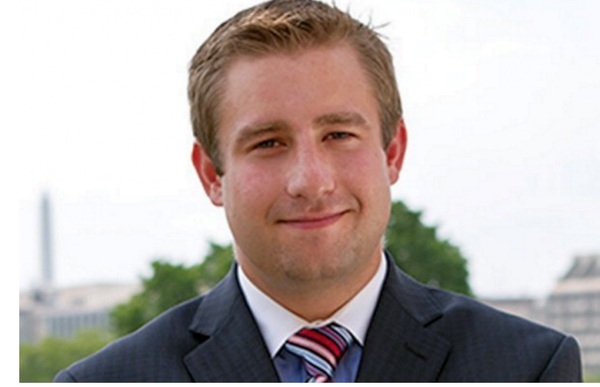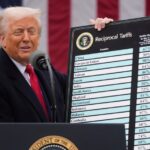
–>
October 3, 2022
This is the tale of two laptops, one tale definitely damaging to the Democrats, one potentially so. What they have in common is that the FBI did its damnedest to bury both.
‘); googletag.cmd.push(function () { googletag.display(‘div-gpt-ad-1609268089992-0’); }); }
For all the hubbub about the Hunter Biden laptop, there has been little talk about the laptop owned by DNC data analyst Seth Rich. In the way of brief summary, the 27-year-old Rich was beaten and then shot by unknown assailants on a Washington, D.C. street in the early morning hours of July 10, 2016. His attackers appear to have taken nothing—not his wallet, not his phone, not his watch.

Seth Rich (photo credit: Linkedin via The Epoch Times)
Rich’s laptop was in his apartment not far from the scene of his murder. For six years, its fate has remained a mystery. In less than two weeks, however, thanks to a recent federal court decision, the FBI will be compelled to share its secrets, presuming there are any secrets and presuming too those secrets have not been scrubbed.
The FBI’s handling of the Hunter Biden laptop is well enough known. The FBI took the laptop into possession in October 2019. If the New York Post had not revealed its existence and some of its highly incriminating contents in October 2020, the public might not be aware of it even today.
‘); googletag.cmd.push(function () { googletag.display(‘div-gpt-ad-1609270365559-0’); }); }
FBI whistleblowers and Iowa Senator Chuck Grassley have pushed the Biden laptop back into the news. In a July 25 letter to Attorney General Merrick Garland and FBI Director Christopher Wray, Grassley noted that the FBI allegedly “developed information in 2020 about Hunter Biden’s criminal financial and related activity,” but FBI Headquarters “improperly discredit[ed] negative Hunter Biden information as disinformation and caused investigative activity to cease.” The agent who blocked the Biden investigation from proceeding, Tim Thibault, resigned under a cloud a month ago.
The FBI’s M.O. on the Seth Rich laptop appears scarily similar. Its contents, like those of the Biden laptop, could have major geopolitical implications. Two weeks after Rich’s death, international man of mystery Julian Assange raised the interest level in his murder by strongly suggesting on Dutch TV that Rich was his source for the DNC emails then stirring up the hornets’ nest known as the Democratic Party. Assange subsequently offered a $20,000 reward to find Rich’s killer.
Three days before the November 2016 election, Assange reportedly told liberal media analyst Ellen Ratner that Rich was, in fact, his source for the DNC emails. Soon after Trump’s inauguration legendary investigative journalist Sy Hersh cited an FBI report confirming Assange’s claim. Later that year, DNC head Donna Brazile dedicated her book, Hacks, to Rich and questioned whether the Russians had “played some part in his unsolved murder.”
A half-century or so ago, journalists would have been all over a story so rich in political intrigue. Not in 2016. Despite the stakes—or perhaps because of them—no major publication or network except for Fox News has even attempted to solve the still unsolved murder. The media quickly settled on a “botched robbery” scenario and scolded those who dug deeper. Fox News tried, and its execs rather wish they hadn’t. Fox got sued into submission by Rich’s parents. In fact, just about every independent investigator that took up this case has been sued or cancelled or dismissed as a conspiracy theorist.
Among those sued for his efforts was Ed Butowsky, a Texan financial advisor and occasional TV commentator. In January 2017, he recorded a phone conversation with the profane and refreshingly candid Hersh, a Pulitzer Prize winner. It was Hersh who alerted Butowsky and others to the FBI involvement in this seeming street crime. According to Hersh, the D.C. Police called in the FBI when its cyber unit failed to open Rich’s computer. The FBI’s “hot s—” cyber team succeeded and filed a report.
As Hersh related, the report detailed how Rich “submitted a series of juicy emails from the DNC” to the WikiLeaks drop box and asked Assange for money in exchange for more emails. Hersh, however, had not seen the report itself. He cited a source on the inside who had been “unbelievably accurate” in providing Hersh information in the past.
‘); googletag.cmd.push(function () { googletag.display(‘div-gpt-ad-1609268078422-0’); }); } if (publir_show_ads) { document.write(“
Attorney Ty Clevenger, who represented Butowsky, has been working with “Texas man” Brian Huddleston to find out what the FBI knows. Clevenger began by filing Freedom of Information Act (FOIA) suits on behalf of Huddleston regarding Rich’s “involvement in DNC e-mail leaks” as early as August 2017.
Judge Amos Mazant’s 53-page “memorandum opinion and order” documents each phase of FBI stonewalling from denial to the reluctant acknowledgement of 20,000 relevant files. “Had it not been for Huddleston’s persistence,” writes Mazant, “it is likely that the failure to locate over 20,000 pages of potentially responsive records would have gone unnoticed.”
The FBI denies Hersh’s version of events. Michael Seidel, an FBI official, contends in a declaration to the court that the FBI “offered to assist the MPD with its investigation; however, the MPD declined the offer.” As a consequence, the FBI “did not open an investigation into the death of Seth Rich nor did it provide investigative or technical assistance to the MPD.”
The FBI concedes that it has the contents of Rich’s laptop in its possession but also claims that it “had no involvement in the extraction of the data.” An unnamed “confidential source,” Seidel contends, provided that data to the Bureau. Not having extracted the data itself, the FBI cannot validate whether the information in its possession was actually on Rich’s laptop “at the time of his death.”
In a curious parallel, three months before Rich’s murder the DNC rejected the FBI’s help with the alleged hack of its computers, and then, too, the FBI rolled over. DNC staff alerted a DNC attorney at Perkins Coie, and he, in turn, recommended a private cyber security firm called CrowdStrike to clean up the mess. The Soviet-born Dmitri Alperovitch, CrowdStrike co-founder and chief technology officer, identified two hacker groups, “both working for the Russian government,” as the culprits. The media and the FBI accepted Alperovitch’s word as gospel.
Although claiming only a superficial knowledge of the content of Rich’s laptop, the FBI argued that his survivors have a “privacy interest” in withholding that information from the public. Mazant ruled otherwise: “The Court finds the FBI improperly withheld this information under FOIA.” He ordered the FBI “to produce the information it possesses related to Seth Rich’s laptop and responsive to Plaintiff’s request with 14 days of this order.”
In the movie version, the Washington Post newsroom is abuzz with the information contained in the Mazant memorandum. Reporters would want to know, at a minimum, who on the MPD rejected the FBI’s offer to help, why did the FBI so meekly accept the rejection, how could the FBI have been so indifferent to the laptop’s contents especially given its five-year fight to deep-six it, and who, finally, was the FBI’s confidential source? In the real-world version, unfortunately, the Washington Post shames those who ask such questions.
Three weeks after Rich’s murder, the FBI opened operation Crossfire Hurricane, the investigation into potential Trump-Russia collusion. This investigation would consume the FBI for the next several years. If Rich—and not the Russians—had proved to be the Wikileaks source, the whole Trump-Russia narrative would implode, and the fallout would singe half of official Washington. In short, the FBI had even more motive to suppress the contents of the Rich laptop than it did the Biden one.
FBI techs have had six years to scrub the data. Pollyanna herself would be downright skeptical of retrieving anything of value. That conceded, the FBI went to considerable length in its declarations to distance itself from the contents of the laptop. No sane person would bet on this outcome, but those contents would make for a wonderful October surprise.
To learn more, see www.cashill.com
<!– if(page_width_onload <= 479) { document.write("
“); googletag.cmd.push(function() { googletag.display(‘div-gpt-ad-1345489840937-4’); }); } –> If you experience technical problems, please write to [email protected]
FOLLOW US ON
<!–
–>
<!– _qoptions={ qacct:”p-9bKF-NgTuSFM6″ }; ![]() –> <!—-> <!– var addthis_share = { email_template: “new_template” } –>
–> <!—-> <!– var addthis_share = { email_template: “new_template” } –>






